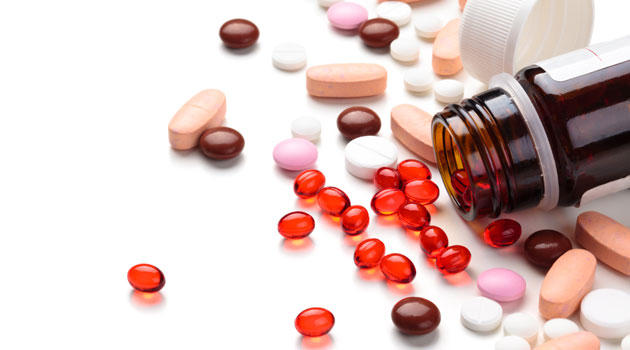Nicola Sturgeon’s husband re-arrested
Font size very small but only on this site
Prayer ban at Katharine Birbalsingh’s school is lawful, High Court rules .


To highlight National Arthritis Week (which runs from the 12th-18th October 2015) we've asked Dr Tom Margham, Lead for Primary Care at Arthritis Research UK and a GP in East London to give us his top tips on how to manage joint pain with arthritis.
 If you've got joint pain or have been diagnosed with osteoarthritis and are still experiencing increasing pain, do talk to your doctor. Osteoarthritis doesn't inevitably just get worse over time and it may be that you are having a flare up of pain that can be helped.
If you've got joint pain or have been diagnosed with osteoarthritis and are still experiencing increasing pain, do talk to your doctor. Osteoarthritis doesn't inevitably just get worse over time and it may be that you are having a flare up of pain that can be helped.
Drug and non-drug treatments may help. Examples are: supports and bracing of the joints, insoles for shoes, physiotherapy and devices such as tap-turners.
In the absence of 'magic bullets' when it comes to managing the symptoms osteoarthritis, I aim for a combination of treatments which, whilst on their own may only give a small benefit, when used together may have a bigger effect.

If arthritis is causing pain, you may not want to move. But this can increase stiffness and in the long term your muscles will weaken, making movement even more difficult. If you don't use it, you may lose it.
Exercise also has positive mental effects. Often you'll feel much better and more self-confident when you've done some exercise. This can affect the way you cope with a condition.
To start exercise and stay motivated, follow these tips:

In the UK, at least 60% of people with arthritis use complementary and alternative medicine each year. From aromatherapy to acupuncture, because there are so many types, it's impossible to generalise about whether they work or not. Everyone responds differently to the treatments.
However, if you find that complementary and alternative therapies work for you, then this may be a more important consideration than how or why the therapy works.
Do bear these tips in mind:

Although there are no diets or dietary supplements that will cure your arthritis, some people do find that their symptoms improve as a result of changing what they eat.
The two most important things to bear in mind are:
If you have any type of arthritis you should try to eat:
A balanced and varied diet to get all the vitamins, minerals, antioxidants and other nutrients you need
A more Mediterranean-style diet which includes fish, pulses, nuts, olive oil and plenty of fruit and vegetables
More omega-3 fatty acids, for example, from oily fish

Pain is a protective mechanism that alerts the brain when damage has occurred. This is helpful when your body is protecting itself from immediate danger. But when we experience pain for long periods of time then there are changes in the way the brain processes those pain messages. The pain messages are not helping us avoid damage, they become a problem in themselves.
Pain also has emotional effects and can make you feel upset or distressed. If it makes you feel down or unable to sleep well, it will be worth discussing treatment options with your GP.
There are a number of approaches available to help you manage your pain:
Simple measures that can help to relieve joint or muscle pain include:
Many people find that following the simple advice can help them manage any flare ups of pain:
Other things you might like:
 |
 |
| Joint pain with BMI Healthcare and win £100 vouchers | Arthritis expert Dr Alan Silman |
Images: Arthritis Research UK and Shutterstock